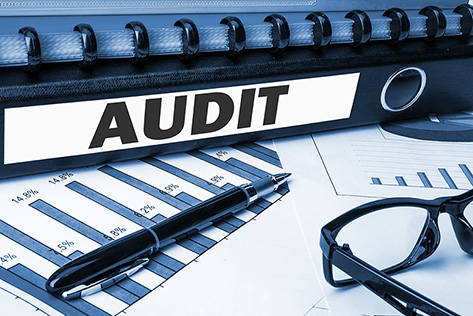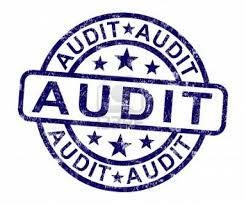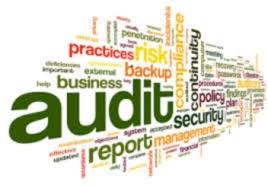|
SMSF auditors have self interest that SMSF audits remain yearly instead of once in three years. SMSF auditors will have the onus to complete three years audit at one time, which will make audits very time consuming and expensive for trustees of the fund. In last week's Tax Institute conference, ATO acting assistant commissioner Tara McLachlan said that "ATO was currently working with Treasury to address some of the issues with the government’s proposal to introduce a three-year audit cycle for SMSFs with clean audit history. The one thing that I can confirm about that proposal is that the SMSF will still have to have the whole three years audited in that third year. You don't get to just skip it for year one and two so it will continue on, but there is still a lot of detail to work through with that announcement.”
What does the SMSF Industry think about once in 3 year audits
Most auditors who I have spoken to, do not understand the government's belief that this proposal will bring some benefit to SMSF trustees and reduce red tape.
One common thing which all stakeholders have pointed out is that they rely on their SMSF auditors to highlight compliance issues which they or their staff may have missed - which means that all parties understand the value addition that an SMSF Auditor brings to the table and all respect this key role. This view is supported by ATO, who use terms such as "Our Gatekeepers and Watchdogs" for SMSF auditors. I have also spoken to many Trustees of SMSF's on this issue. Most have no clue on what an SMSF auditor does. They are willing to go with the flow and follow the advice of their trusted advisor. However, not paying audit fees for two years and then paying five times the amount does not resonate well with them. In practical terms, talk of holding documents securely for audit submission every three years seems to be a daunting task & scary to some trustees. I have no clue where the government got the idea that SMSF trustees will save money by switching to a three-year audit cycle. I am only guessing here, perhaps this idea came from large administrators who have good record of paperwork and use their office as a mail box for trustees. These large administrators manage about 20% of funds (say 120,000 funds) - say top 20 administrators, but they are certainly not a true reflection of the remaining 80% who are represented by over 6,000 accounting firms Australia wide.
At this point of time it is unclear if trustees, advisors, administrators or SMSF auditors will benefit from a three-year SMSF audit cycle.
Dangers of once in 3 year SMSF audits Assuming the acting assistant commissioner Tara McLachlan ensures that there will be no break in audit - this means that the SMSF auditor will be auditing three years together, some of the hurdles which I consider SMSF Auditors and trustees will face are: 1. Audit evidence and documents can go missing in a period of three years, which means that auditors will be lodging more contraventions and breaches. A three year audit will take longer and may disrupt the accountants lodgement program; 2. One audit in three years will increase cost:
3. Errors can go undetected for longer period of time as trustees try and take advantage of no audit in the two years; 4. Trustees will not be able to switch administrators between two audits due to legacy issues with a three year audit term; 5. Those trustees who lodge themselves (without using an accountant or a tax agent), without a proper audit, can be exposed to higher penalties and jail terms by ATO as they may be prone to multiple un-detected errors; 6. It's likely that fund member balances which are a derivative of market value of assets (such as unlisted trusts and property) may not be right where no audit is conducted. Further, taxable and tax free components can get shifted, if auditor is changed in between a three year audit period, providing a different outcome to adult non-dependent beneficiaries; 7. Trustees may be penalised due to lack of savvy administrators (e.g. some accountants do not know the safe harbour LRBA rules etc) looking after their fund without an audit oversight; 8. SMSF auditors management letter will be issued once in three years, that means that trustees will take longer to know minor non-reportable breaches; 9. SMSF auditors will have serious staffing issues and it is quite likely many auditors may leave the industry leaving a small number of auditors inundated with auditing a large number of funds, once in three years; 10. A large number of contravention may get lodged by SMSF auditors, due to self interest of ensuring that the fund does not get a clean chit resulting in a three year audit, this will increase ATOs work.
Other Solutions - to three year audits
An alternative approach can be to let the trustees decide on how often the audit has to be conducted as long as an audit report is submitted at least once in three years. Under this option, commonsense will prevail and then it will be for the trustee to choose how often their fund is to be audited. Trustees usually take the guidance and advice of their trusted advisor seriously and we hope that most administrators will recommend an annual audit for smooth functioning of their practice, which means most of the 6,000 accounting firms would prefer an annual audit which represent about 80% of all funds and large administrators may opt for an audit once in three years. Some accountants due to pressure of late lodgements may want some of their their funds (from those trustees who submit documents late) audited once every two years.
SMSF Auditors Association of Australia The treasury has announced that they will consult with all stakeholders before any legislation is proposed. I think SMSF auditors need a voice of their own which means a new professional body which is run and managed by SMSF auditors is necessary. I have interest from a number of SMSF auditors who have shown keenness to be founding members for a new association. I confirm that a company Limited by Guarantee will be incorporated this week. In anticipation, my IT team has started building a website for SMSF Auditors Association of Australia (for free) - the site is under construction - please have a look at www.smsfaaa.com.au. Once the website is complete, you will be invited to join the association and be part of the committee in running the association.
Manoj Abichandani
|
| click here to unsubscribe from the mailing list |
Phones are not working due to Optus outage, Please click on Live chat Button.
- $139 + ASIC FEECompany Registration
- Fr $55 + ASIC FEEBusiness Name Registration
- $148.5 (Incl. GST)SMSF
Trust Deed - Fr $165 (Incl. GST)SMSF
Tools- Reduce cost of Documents
$55.00 - Pay By Vouchers - Information
- Commence Account Based Pension
($248.5 incl. GST) - Deed of Confirmation
($248.5 incl. GST) - Add Member to SMSF
($248.5 incl. GST) - Delete Member from SMSF
($248.5 incl. GST) - Change Individual Trustee to Corporate
($248.5 incl. GST) - Change Corporate Trustee to Individuals
($248.5 incl. GST) - Change Corporate Trustee
($248.5 incl. GST) - Declaration of Trust
($220 incl. GST) - SMSF Loan Agreement
($220 incl. GST) - Binding Death Nomination
($75 incl. GST)
- Reduce cost of Documents
- $165 (Incl. GST)SMSF
Borrowing - $97.50 (Incl. GST)Actuarial
Certificate - $495 (Incl. GST)Quantity
Surveyor Rep - Fr $125 (Incl. GST)Trusts
- Reduce cost of Documents
$55.00 - Pay By Vouchers - Information
- Discretionary Trust Deed
($148.5 incl. GST)
($250 incl. GST with Company Trustee) - How Discretionary Trusts work
- Unit Trust Deed
($148.5 incl. GST)
($250 incl. GST with Company Trustee) - How Unit Trusts work
- Fixed Unit Trust Deed
($275 incl. GST)
($372.5 incl. GST with Company Trustee) - How Fixed Unit Trusts work
- Why Use Us
- Document Printing
- Reduce cost of Documents
- FreeJobs
- Our
Fees
-
Register a Company or Business Name 24/7,
we have a direct link with ASICHelping you to set up the right business structure online
Fast, Simple and Easy application like never before
Register Now -
Full technical support for Family or Discretionary Trust,
Unit Trust and Fixed Unit TrustFully online, legally compliant trust deed instantly delivered to your inbox
One stop solution for your trust structure needs
Register Now -
Simplify SMSF management & updates
with dedicated SMSF SpecialistCreate the most technically robust
Self Managed Super Fund trust deed, online in less than 20 minutesMake changes easily for smoother running of your SMSF by using our SMSF tools
Register Now -
Get Trusted & Accurate SMSF Borrowing documents
and Actuarial Certificates onlineGet your borrowing documents ready with SMSF Experts
specialised in Limited Recourse BorrowingOrder instant Actuarial certificates online to meet your actuarial certificate requirements
Register Now -
Order a Quantity Surveyor Report online
for your investment property anywhere in AustraliaPhysical visit. No online spreadsheet
Claim maximum for your Investment Property
Register Now


 I have spoken to many administrators and advisors, at this stage it is unclear to them on what benefits a three year audit cycle can bring to their business, they can only think of problems what a "three year bundled audit" can be and how it can disrupt their normal operations. In fact most administrators are hoping that this new rule is optional - which means that they can continue with the yearly audit instead of changing the way they work every three years.
I have spoken to many administrators and advisors, at this stage it is unclear to them on what benefits a three year audit cycle can bring to their business, they can only think of problems what a "three year bundled audit" can be and how it can disrupt their normal operations. In fact most administrators are hoping that this new rule is optional - which means that they can continue with the yearly audit instead of changing the way they work every three years.
 In my opinion, if three audit cycle is legislated, the ATO and ASIC will need to become more vigilant and will need extra resources to cope with issues such as auditor independence and the auditor’s responsibility to report breaches.
In my opinion, if three audit cycle is legislated, the ATO and ASIC will need to become more vigilant and will need extra resources to cope with issues such as auditor independence and the auditor’s responsibility to report breaches.